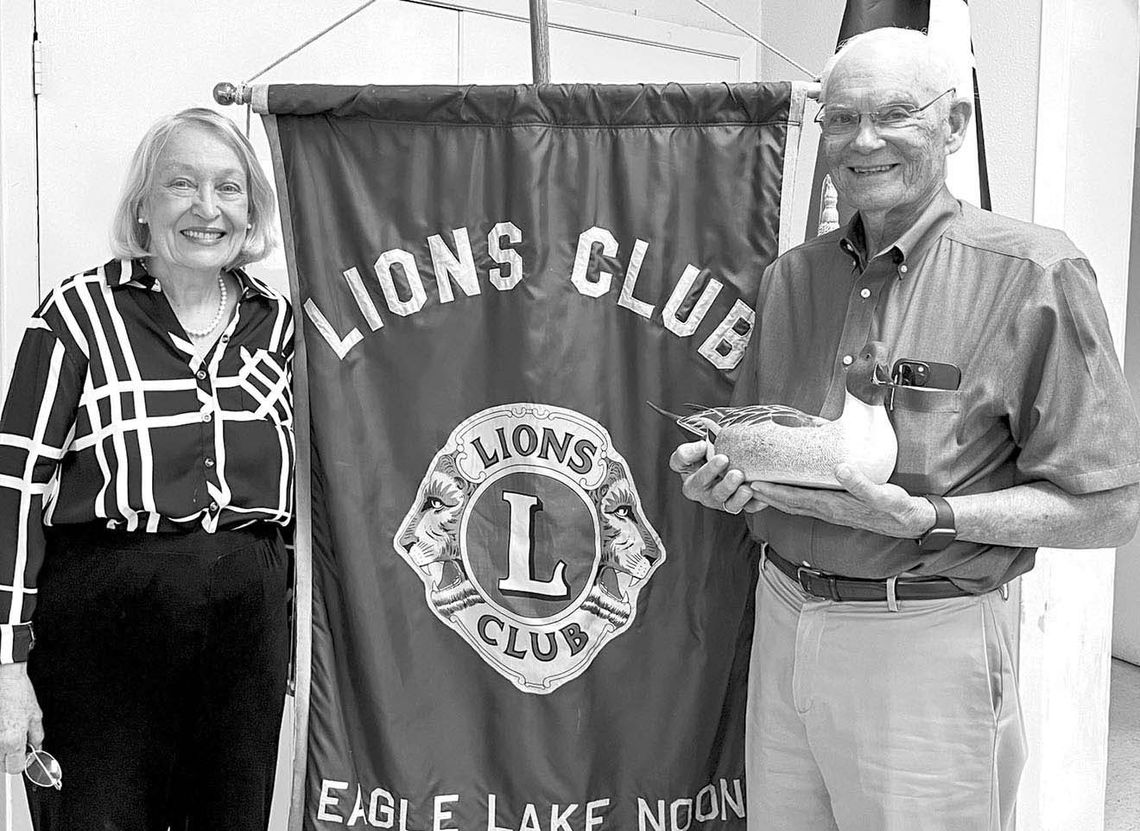On Thursday, October 5, Eagle Lake Noon Lions Club welcomed historian Dr. Sandra Thomas and Jerry Sims, General Manager of Eagle Lake Rod and Gun Club. Sims spoke briefly about the handsome decoy ducks he creates, while Dr. Thomas spoke on a piece of interesting history with “Eagle Lake: Sugar City” The sugar industry, which began in Texas before the start of the Civil War in 1861, was revived in the late 1880s in the Colorado River basin near Eagle Lake.
Sugarcane required an enormous amount of manual labor to cut and load the product into wagons for transport.
Since the local population could not meet the demand for workers, the plantation owners leased convicts from the Texas penitentiary system. In 1898 about 700 prisoners were harvesting sugarcane in the area.
One of the leading sugar producers in Colorado County was William Dunovant. In 1898, he and several men from Eagle Lake built the Cane Belt Railroad to take cane to the mill.
The success of the railroad encouraged Dunovant to build a refining plant for the area.
Lakeside Sugar Refinery, erected near Eagle Lake in about 1902, processed up to 1,000 tons of cane each day and produced 5 million pounds of refined sugar each year.
A train called the “Whangdoodle” carried cane from nearby fields to the refinery.
By 1907 Lakeside Mill was one of the largest in Texas, with about 100 employees. Eagle Lake was then known as “Sugar City”.
The booming sugar Industry stimulated the local economy and attracted other able businessmen. However, several events caused the downfall of the local sugarcane business.
In 1910, the Texas legislature passed a law forbidding the leasing of convicts on humanitarian grounds.
Weather was also an enemy as in 1910-1911, there was both a hurricane and a hard freeze which destroyed more than half of the sugarcane crop.
The Lakeside Sugarcane Refinery closed in 1911, and by 1918, its machinery was dismantled and sold to a sugar producer in Jamaica where it is still in use today.
.jpg)

